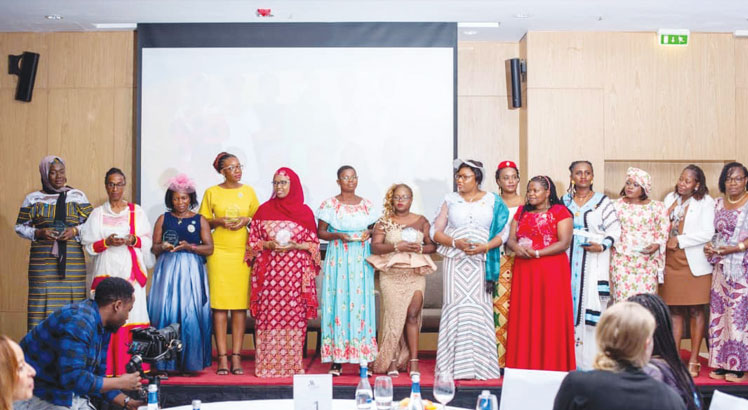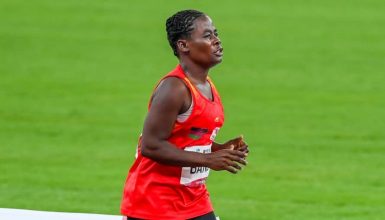Mary William Brown
Mary William Brown, 45, a community health worker for Partners in Health/ Abwenzi Pa Za Umoyo has been recognised by Women in Global Health (WGH) for her extraordinary contribution towards safe motherhood and maternal health.
The mother of two boys from Kanangwanji Village, Traditional Authority (T/A) Dambe in Neno has served as a community health worker in the district since 2010, bridging the gap in access to healthcare services and resources through home visits and offering health education to those with limited access to primary healthcare.
She assists in screening her fellow community members for different health challenges; accompanies pregnant women and new mothers to healthcare facilities and conducts follow-up visits to mothers with new-borns.
She also ensures that patients with non-communicable diseases do not miss their medical appointments; and accompanies newly enrolled Tuberculosis (TB) and HIV patients for scheduled and emergency visits, among other things.
With all these efforts in promoting good health in the community, she was among the 12 outstanding women health workers in Africa advancing sexual, reproductive health and rights (SRHR) who received the 2023 Heroines of Health (HOH) award during the award gala that took place in Kigali, Rwanda in July, 2023.

She could hardly believe her luck, that as a mere volunteer she could get such international recognition, and highlights that this has given her the zeal to work even harder.
HOH Awards were established by Women in Global Health in 2017 as a platform to amplify the exceptional work done by women, who are in majority in the health workforce.
This year, the awards gala was held under the theme: ‘Driving Change for Safe Maternity and Sexual and Reproductive Health and Rights’.
Mary and her fellow awardees represent the heart and soul of women in the health sector in Africa who bring unique perspective and expertise, and are making invaluable contributions in the realisation of the right to health for women to achieve Universal Health Coverage (UHC) across the African continent.
“When the news that I was nominated came, I was very surprised and in disbelief that I was traveling abroad to represent my country on this program. Now having this award gives me satisfaction knowing that I’m contributing to my community and the country as well.
“It is such a great honour to be among the 12 women in Africa to be celebrated this year for our contribution towards safe motherhood. I wish my fellow health workers could learn from this experience and remain committed to serving lives through the job that we do as community health workers,” she says.
Among the many things that she does is going door-to-door visiting pregnant women from her community, encouraging them to start antenatal care in the early stages of pregnancy.
She then follows up with them throughout their pregnancy and accompanies them to the nearby healthy facilities if need be.
She explains: “I ensure that these pregnant women are adhering to all the antenatal care procedures provided at the hospitals through daily visits to their homes. After delivery, I ensure that all newborns are properly vaccinated as required and they’re properly breastfeed through their early stages of growth. Apart from that, I look after the overall health of the families in my community, ensuring that people are well informed and that all their health needs are met”.
One would wonder how she found herself doing all this—Mary explains that in her first pregnancy in 2006, she went to deliver at a traditional birth attendant where unfortunately, things did not go well.
She ended up being taken to the hospital where she received the appropriate health care, and this is how she was motivated to commit to supporting women to be delivered of their babies from health facilities.
Through the PIH support, community health workers such as Mary visit homes every month and help pregnant women to go for early antenatal services (within three months); to go and wait for delivery at health facilities when they complete 36 weeks of pregnancy and to use family planning methods after delivery so that they can take care of the baby to grow healthy before they can have another pregnancy.
Among other challenges, the 45-year-old observes that some women hide and do not want to reveal that they are pregnant until after four months, for fear of losing it if they tell.
This, she worries, affects some women who then begin ante-natal services at four months or beyond, which affects them, if for instance, they have some problems that need urgent attention including the prevention from mother to child
transmission (PMTCT) interventions.
“It is my desire to sensitise women in my community to the need to seek safe delivery from the hospital. In the years to come, I hope to have all pregnant women in my community delivering safe in hospitals, with both mothers and newborns safe from any harm. It is my vision to ensure that the number of deaths of pregnant women and newborns during and after delivery is reduced significantly,” she said.
Apart from working as a community health worker, Mary and her husband Mathias Brown are also into farming, which serves as their main source of income to handle their day-to-day needs.
“We cultivate maize. We also cultivate sugarcane in our garden but this year we lost it all to the effects of Cyclone Freddy. We are likely to be heavily challenged financially this year,” she says.
Born on 23 June 1978 at Neno Parish, Mary has been so consumed by the safe motherhood efforts that she even likes to share her experience with the traditional birth attendants and the knowledge that she has gained over the years with other women in her community.
“I consider this as a calling to serve, and it is my desire to teach others in my community on the importance of serving others particularly on this topic of safe motherhood,” explains the community health volunteer, who despite having a Primary School Leaving Certificate as her highest qualification, pushes harder to serve her country better





